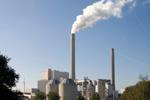
The European Commission has formally adopted a ban on the use of industrial gas credits in the EU Emissions Trading System (EU ETS) as of May 2013.
The ban will apply to credits from projects which destroy two industrial gases: trifluoromethane (HFC-23), produced as a by-product of chlorodifluoromethane (HCFC-22) principally in air conditioners and refrigerators, and nitrous oxide (N2O) from adipic acid used in the manufacture of nylon. HFC-23 and N2O are both powerful greenhouse gases which contribute to climate change.
The recognition of credits from industrial gas projects has been controversial for some time. EU Member States approved the ban on 21 January 2011; the European Parliament then had three months to accept the measure.
The ban will begin on 1 January 2013 with a phase-out period of 4 months until 30 April 2013 for credits from existing projects. The European Commission is currently not considering any other specific use restrictions beyond industrial gases.
Read More:
- IP/11/56: Emissions trading: Commission welcomes vote to ban certain industrial gas credits
- Questions & Answers on Emissions Trading: Use restrictions for certain industrial gas credits as of 2013
- Draft Commission regulation of 7 June 2011 determining, pursuant to Directive 2003/87/EC of the European Parliament and of the Council, certain restrictions applicable to the use of international credits from projects involving industrial gases
- Linking the EU ETS to other Emissions Trading Systems and incentives from international credits
Details
- Publication date
- 8 June 2011
- Author
- Directorate-General for Climate Action
